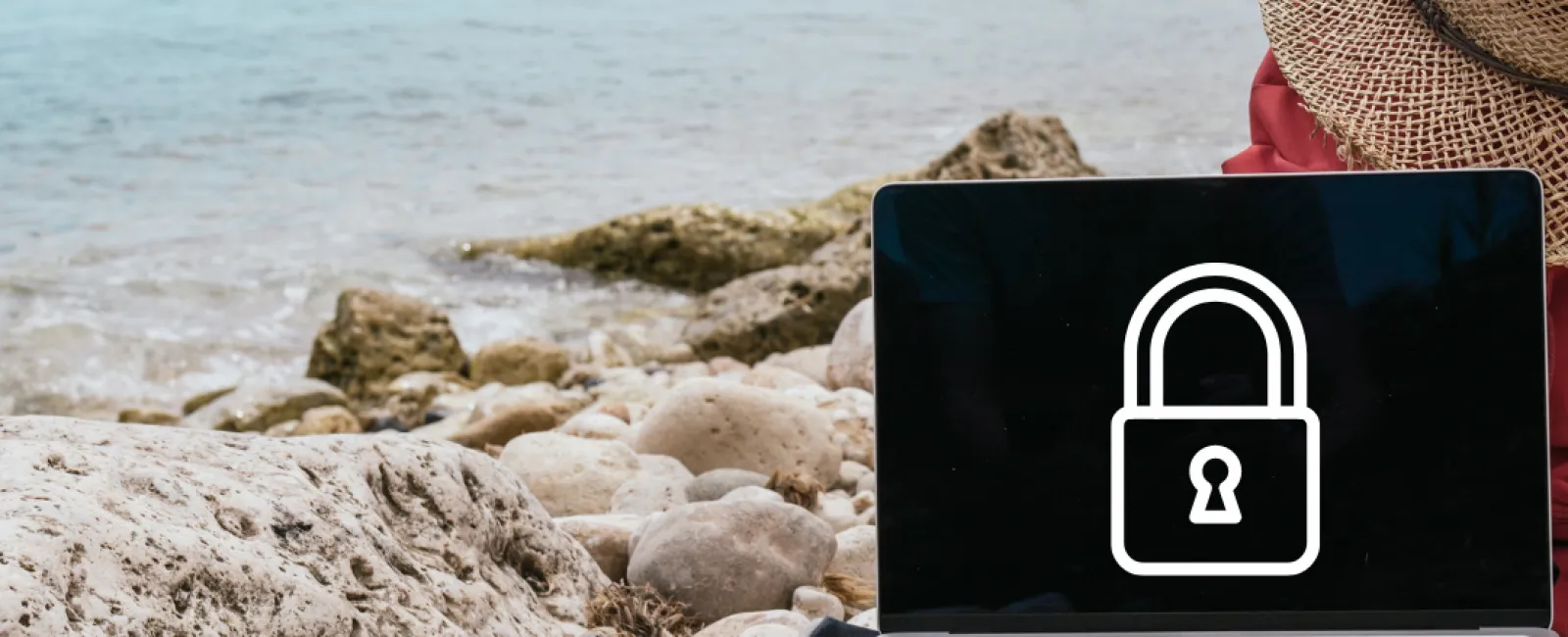Summer is a prime time for business owners and employees to step away from the office for a well-earned vacation. Despite the "out of office" email responder, many still find themselves checking in on work occasionally. Unfortunately, studies indicate that working outside the office—whether during a vacation, at a local coffee shop, or on a business trip—can pose significant cybersecurity risks. If you or your employees plan to handle urgent emails from the airport or access network documents in the hotel lobby, it's crucial to adhere to robust cybersecurity practices to protect your company's network from nearby hackers.
In this blog post, we'll outline essential cybersecurity measures to take before and during any trip to ensure your network remains secure.
The Importance of Cybersecurity While Traveling
Cybersecurity may not be on your vacation checklist, but overlooking it can quickly turn your dream getaway into a nightmare. Cybercriminals are well aware that summer is an optimal time to strike, as people tend to let their guard down while on vacation. Most vacationers focus on relaxing rather than adhering to cybersecurity best practices, making them easy targets for hackers.
To reduce the risk of a cyberattack while traveling, here are some best practices to share with your team members who might connect to the Internet during their vacation.
Before You Go:
- Back Up Your Data: Ensure you have a copy of your data that can be restored if your device is lost or damaged.
- Update Your Software: Make sure your operating system, web browsers, and apps are updated to the latest versions. Outdated software can compromise your device's defenses against malware.
- Protect Your Devices: Always lock your device using a PIN, passcode, fingerprint, or facial recognition. Set this up before traveling to prevent unauthorized access if your device is left unattended.
- Enable "Find My Phone": This feature allows you to locate your device if lost and remotely wipe data or disable it if it falls into the wrong hands.
While Traveling:
- Use a Virtual Private Network (VPN): A VPN encrypts your Internet connection, keeping your data secure even on public WiFi networks. Set up a VPN on your devices before you leave and use it whenever you access the Internet.
- Avoid Public WiFi: Public WiFi networks are convenient but can be hotspots for cybercriminal activity. Avoid using unprotected networks whenever possible. (Yes, that means no checking your email on the beach unless you have a VPN!)
- Manage Location Services: While location tools are useful for navigation, they can also expose your location to criminals. Turn off location services when not in use and be cautious about sharing your location on social media.
- Enable Multifactor Authentication (MFA): MFA adds an extra layer of security by requiring a second form of verification, such as a text message code, authenticator code, or fingerprint scan. Enable MFA for all accounts containing sensitive information before you leave.
- Disable Auto-Connect Features: Some devices automatically seek and connect to available wireless networks. These features can expose your devices to cybercriminals if you connect to the wrong network. Disable this option and only connect to trusted wireless and Bluetooth networks.
Taking these simple precautions can help you secure your devices, allowing you to relax and enjoy your vacation without worrying about cyber issues when you return to work.
However, these steps are not foolproof. To ensure your company's cybersecurity measures are truly up to standard, it's wise to collaborate with a professional IT team. They can monitor your network around the clock, patch vulnerabilities as they arise, and alert you to any suspicious activity.
To help you prepare for your vacation and have peace of mind knowing your business is secure while you or your employees are working remotely, call us at 337-547-2193 or click here to schedule a FREE consult with our cybersecurity experts today. We'll evaluate your current cybersecurity solutions, identify potential vulnerabilities and help you implement a strategic security plan to keep your company safe.




